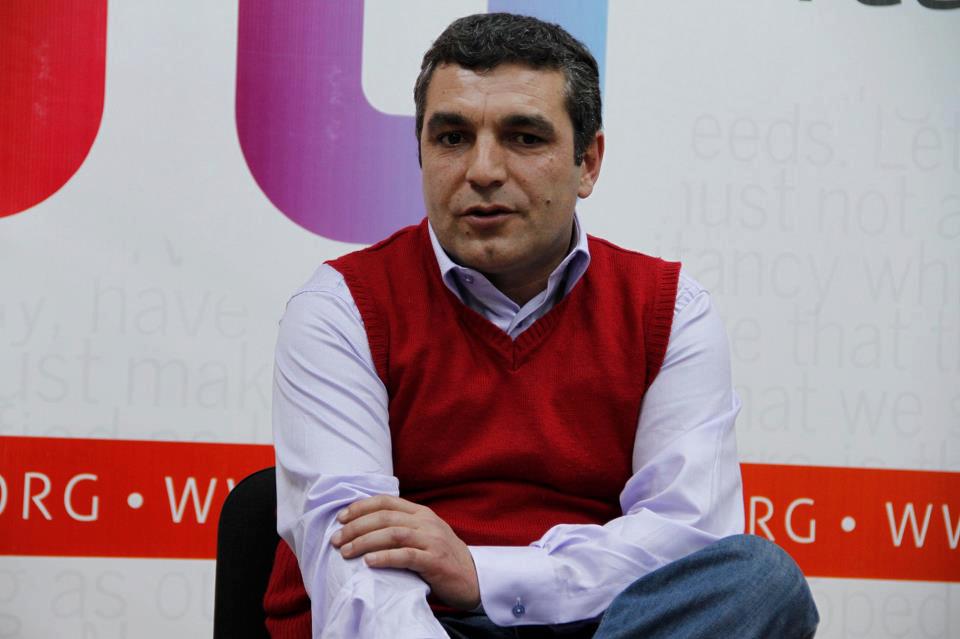Will large fines for entrepreneurs using card-to-card payments bring Azerbaijan's economy out of shadows?
Fines for card-to-card payment in Azerbaijan
The State Tax Service (STS) under the Ministry of Economy has imposed financial penalties on 467 more taxpayers engaged in the catering and retail sectors in Baku.
The STS has been issuing such updates almost daily since 29 October this year. According to a Pressklub.az study, up to 3,000 entrepreneurs have faced financial sanctions over the past two and a half months.
The STS reports that these establishments were offering customers the option to pay bills via “card-to-card” transfers for cashless payments, and in some cases, POS terminals were found to be used at unregistered locations.
“Protocols have been drawn up, and decisions have been made to impose financial sanctions on these business entities,” the statement reads.
- Council of Europe Secretary General: “Georgian authorities pledge to amend ‘foreign agents’ law”
- Impact of video games on teens: Armenia reports fewer suicides in 2024
- Opinion: Why does Baku oppose EU mission on Armenia-Azerbaijan border?
On 28 October, the State Tax Service (STS) reminded entrepreneurs that cashless payments must be processed exclusively through POS terminals, and customers must be provided with both a POS terminal receipt and a cash register receipt at the time of payment.
The statement also highlighted that, under the “Consumer Rights Protection Law,” the installation of POS terminals, and under the “E-Commerce Law,” ensuring consumers have the ability to make electronic payments, are direct obligations of taxpayers.
“The tax authority has the right to conduct operational tax control measures to investigate these cases and identify instances where cashless payments are refused at locations where the installation of POS terminals is mandatory,” the statement reads.
As for the fines, the penalty for the first violation within a calendar year for failing to install a POS terminal at a location where it is mandatory is 1,000 manats (approximately $600). For a second such violation, the fine increases to 3,000 manats (approximately $1,800), and for a third or subsequent violation, financial sanctions of 6,000 manats (approximately $3,600) are applied.
This raises several questions:
- Why do entrepreneurs avoid accepting cashless payments despite the strict financial penalties?
- How does the tax authority identify card-to-card payments?
- Are the financial sanctions imposed on entrepreneurs reasonable?

Financial sector expert and lawyer Akram Hasanov told Pressklub.az that funds earned by entrepreneurs as taxpayers are deposited into their personal individual accounts, which presents a problem:
“An entrepreneur may have both a business account and a regular bank account used by anyone. The tax authority accuses them of receiving funds into this regular bank account. There is no issue with transfers to a business account because taxes are automatically deducted from those transactions. However, some entrepreneurs sell goods, services, etc., and during the sale, they ask customers to transfer payments to their personal accounts. This could happen in a shop or elsewhere.
It is clear that this constitutes tax evasion. Tax evasion has always existed, but in the past, it was done in cash rather than through transfers. The tax authority couldn’t track these transactions back then.”
There are several ways to identify cashless payments that do not go through POS terminals. The expert explains that, for example, a customer might file a complaint about an entrepreneur asking them to transfer money to a personal bank account.
“Although, in practice, this rarely happens—customers are generally not inclined to report entrepreneurs. Therefore, the tax authority has found a very simple solution: obtaining information about entrepreneurs’ personal bank accounts from banks. However, banks should not provide this information to the tax authority because it is protected by banking confidentiality. A bank can only share information about a business account, not a personal individual account!
The tax authority looks at frequent incoming transactions from various sources to a personal bank account and concludes that these funds are likely connected to business activities. It then considers the entire amount as entrepreneurial income and imposes fines on the taxpayer.”
The lawyer notes that in such cases, if an entrepreneur has sufficient knowledge and courage, they can navigate the situation:
“They can claim that these funds are unrelated to entrepreneurial activity, that they were sent by friends or acquaintances, and demand proof that the funds came from business transactions. If there are no complaints from citizens against the entrepreneur, how can the tax authority determine and prove otherwise?”
According to the expert, as mass fines increase, those seeking to avoid informal taxation will continue to accept payments exclusively in cash. People will withdraw money from their cards and pay in cash, as they did before.
“Let’s assume that no entrepreneur accepts card-to-card payments and switches entirely to cash transactions. What can the tax authority do in this case? Of course, entrepreneurs should not evade taxes—that is wrong. But tax authorities also cannot obtain information illegally from banks, and banks should not provide such information unlawfully.
All this highlights a serious problem in Azerbaijan. Citizens readily make card-to-card payments. Why? Because they do not see the tax system as fair. What should an honest, law-abiding citizen think? Why should I pay to your personal card? Please, pay the state tax. This is how citizens in developed countries think, but not here…”
The expert emphasizes that this situation is driven by the tax burden, cash withdrawal taxes, high commissions, and similar issues.
“Entrepreneurs resort to such practices due to high costs. For instance, the 1% tax on cash withdrawals is disgraceful and entirely unlawful. I even filed a lawsuit against the tax service regarding this. Based on my complaint, the Constitutional Court appealed to the Milli Majlis to address this issue, but it was never reviewed.”

Economist Natig Jafarli told Pressklub.az that the government is trying to bring the economy out of the shadows, “formalize it,” and collect more funds to fill the budget through taxes:
“The pandemic taught people to pay by card. Look at the taxes from trade turnover… We are the same people, eating the same amount of food and wearing the same clothes. But there’s a significant difference between trade turnover volumes from 5-8 years ago and now. Turnover has increased. As turnover grows, so do revenues from VAT, taxes, and the revenue side of the budget. Why? Are people consuming more? No…”
The economist draws attention to the low growth dynamics of the country’s economy:
“Growth of one to three percent is not real growth. So what is happening? Formalization. We pay more by card, and as a result, turnover increases. When turnover increases, so do tax revenues. For example, they claim there’s growth in the non-oil sector, but what we see is trade. Is that the non-oil sector?
If everything we buy were produced in Azerbaijan, it would be half the problem. But all of it is imported goods. When we pay, say, 5 manats for something, those 5 manats leave the country. Then government members ask why the demand for foreign currency is rising. Of course, it’s rising—we produce nothing domestically and buy everything abroad, so demand grows. That’s why I don’t see a problem with the figures. The issue lies in the transparency and direction of expenditures.”
In this context, Natig Jafarli believes that next year’s budget, amounting to 38.3 billion manats (approximately $22.5 billion), will also be driven by the “formalization” of the economy:
“They present formalization as an economic success. However, this is not an economic success but an additional burden placed on the shoulders of citizens and businesses. I am not saying that everyone should operate in the grey zone. However, transitioning from the grey zone to the white zone solely through penalties is impossible. Incentive mechanisms are necessary. We have no such mechanisms.”






















